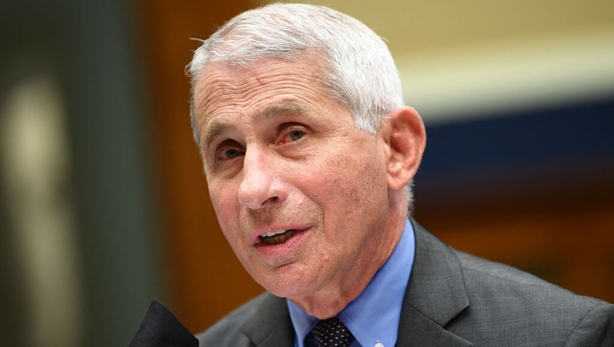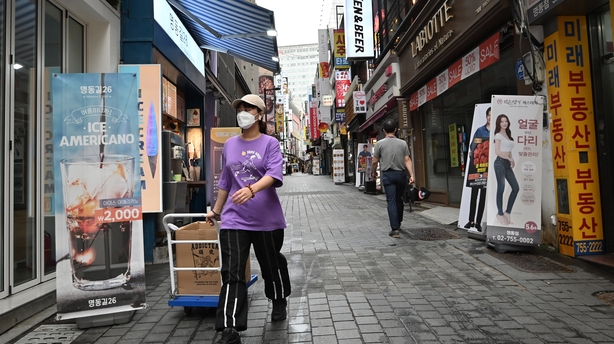More than 15.8 million people have been reported to be infected by the novel coronavirus globally and 638,271 have died, according to a Reuters tally.
Infections have been reported in more than 210 countries and territories since the first cases were identified in China in December 2019.
Meanwhile a survey has suggested that governments are fast losing support for their handling of the coronavirus outbreak from a public that widely believes death and infection figures to be higher than statistics show.
Support for the federal government of the United States, the country with the most reported infections and deaths, dropped by four percentage points from mid-June, with 44% of respondents declaring themselves dissatisfied, said a report by the Kekst CNC communications consulting group.
In the UK, just over a third of respondents approved of their government's actions, a three-point decline in one month, according to the report, based on an opinion poll conducted over five days in mid-July.
It also included France, Sweden, Japan and Germany.
A number of European countries are warning of a second wave of Covid-19 infections. Nightclubs have been closed in Catalonia , France has decided to roll-out on-the-spot Covid tests for those arriving from countries where the virus is widely circulating. pic.twitter.com/BoIYEQKGDF
— RTÉ News (@rtenews) July 25, 2020
"In most countries this month, support for national governments is falling," the report said.
The notable exception was France, where approval rose by six percentage points, yielding a dissatisfaction rate of 41%.
France, which has the world's seventh-highest Covid-19 toll, has all but emerged from lockdown but has seen infections increase in recent days, prompting the government to order face masks in all enclosed public spaces.
In Sweden, which took a controversial soft approach to lockdown and has a higher toll than its neighbours, the prime minister's approval rating has shrunk from a positive seven percent to a neutral zero, the poll found.
People who participated in the survey - 1,000 per country polled - generally believed the coronavirus to be more widespread, and more deadly, than official figures show.
"Despite relatively low incidence rates compared to earlier in the pandemic in most countries (with the exception of the US), people significantly overestimate the spread and fatality rate of the disease," Kekst CNC said.
In Spain, all nightclubs have been ordered to close in Catalonia. The World Health Organisation has expressed concern over a resurgence of Covid-19 across Europe. pic.twitter.com/icRBNpxOUZ
— RTÉ News (@rtenews) July 25, 2020
In Sweden and the UK, the public believed that six or seven percent of people have died from the coronavirus, about 100 times the reported rate.
In the United States, respondents estimated that almost a tenth of the population had died of the virus, more than 200 times the real toll, while Germans thought their tally was 300 times higher than what has been reported.
Fauci expects US vaccine 'widely available' in 2021
Dr Anthony Fauci, director of the US National Institute of Allergy and Infectious Diseases, has said he expects a Covid-19 vaccine will be "widely available" in the United States by 2021.

"I think as we get into 2020, 2021, several months in, that you would have a vaccine that would be widely available to people in the United States."
Dr Fauci said "I think we will likely know whether a vaccine is safe and effective given the number of phase 3 trials that are starting literally next week, and there are some in other countries that are already ongoing, that we should know by the end of December of this year, the beginning of next year."
It comes as the US recorded more than 1,100 deaths from Covid-19 on Thursday, marking the third straight day the nation passed that grim milestone as the pandemic escalates in southern and western US states.
Dr Fauci spoke about US President Donlad Trump's change of stance on wearing face masks to prevent the spread of the coronavirus.
"The president has gone out there and is saying things now that I think are important, have to do with wearing masks, crowded, staying away from crowded places.
"So I think that they have been helpful now and also, they've been short and crisp, which I think is good when you're trying to get a message across."
S Korea sees surge in new coronavirus cases
South Korea reported a surge in new coronavirus infections today, recording its highest figure in nearly four months with dozens of imported cases.
The country added 113 new cases, including 86 among people who arrived from overseas, bringing the total to 14,092, according to the Korea Centers for Disease Control and Prevention.

It was the second highest figure since 31 March, when the country reported 125 new cases. It was also the first time it has seen more than 100 cases since 1 April.
All overseas arrivals are required to undergo a two-week quarantine.
South Korea endured one of the worst early outbreaks outside China but brought it broadly under control with an extensive "trace, test and treat" programme while never imposing a compulsory lockdown that was put in place in much of Europe and around the world.
The country has been seen as a model on how to combat the pandemic with the public largely following safety health measures such as wearing face masks.
The rise in cases comes with the country planning to let limited numbers of baseball fans back into stadiums tomorrow as authorities seek to restore normality after the coronavirus crisis.

